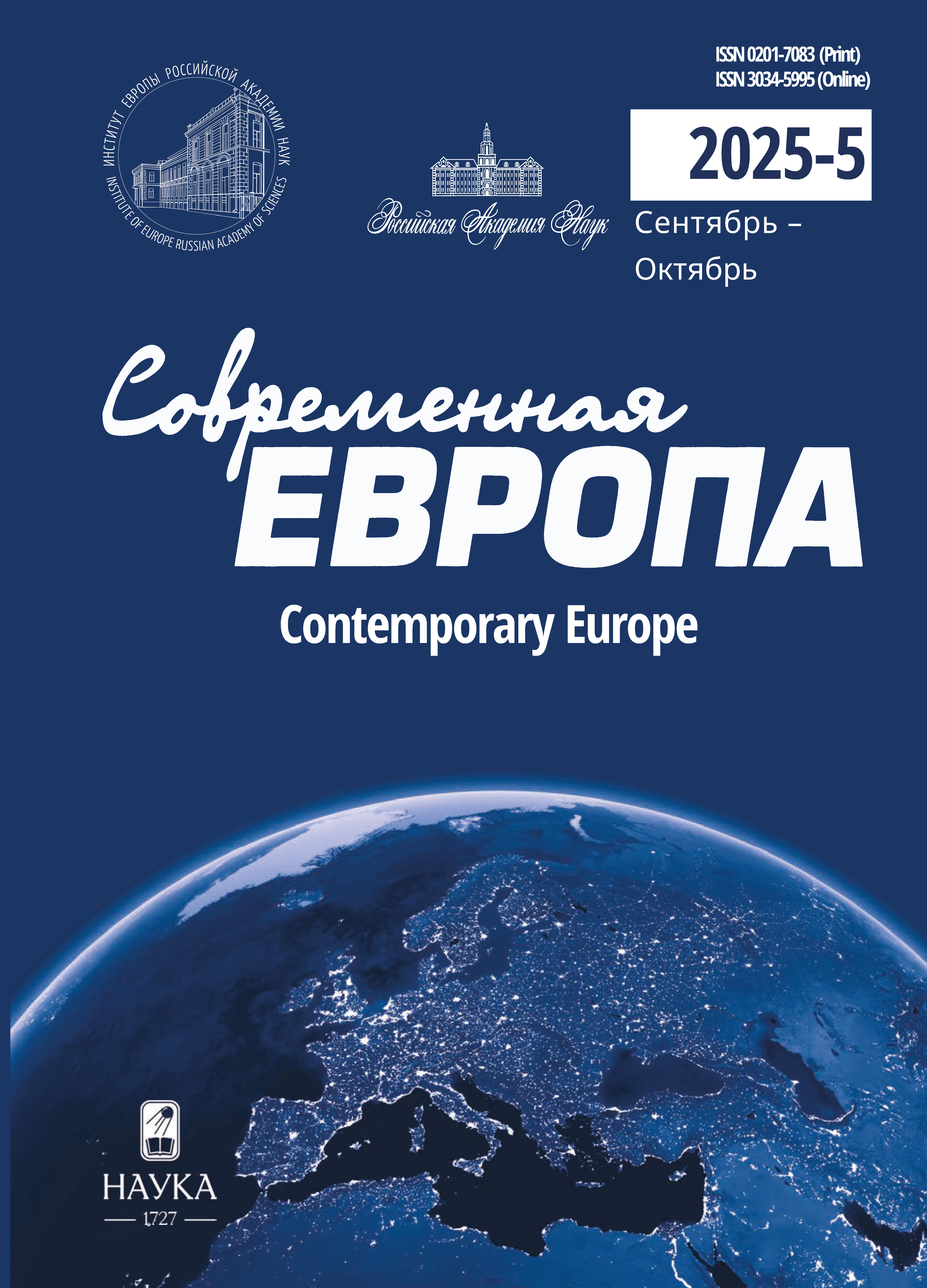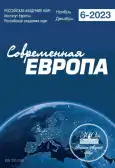The norway's policy in the context of the Russia's special military operation in Ukraine
- Authors: Skripka I.R.1
-
Affiliations:
- Institute of Europe Russian Academy of Science
- Issue: No 6 (120) (2023)
- Pages: 49-58
- Section: Articles
- URL: https://rjsvd.com/0201-7083/article/view/652190
- DOI: https://doi.org/10.31857/S0201708323060050
- EDN: https://elibrary.ru/XWUKMI
- ID: 652190
Cite item
Abstract
The article examines Norway's policy in terms of the special military operation of the Russian Federation in Ukraine (SMO). The author analyses the official position of the Kingdom of Norway on this issue, documents regulating its actions, materials in the media and public polls. Norway is not a member of the EU, therefore it joins sanctions against Russia by decision of its own authorities. Almost all of them coincide, but on some issues (for example, fishing) Norway takes an independent position. The most significant issues for Norwegians are humanitarian and military assistance to Ukraine, as well as anti-Russian sanctions and their consequences. This is reflected in the actions of the Storting, the media, as well as the policy documents of leading political parties. The SMO evokes a negative reaction of all leading political actors in Norway, but at the same time there are differences in the possible ways out of the crisis. Also, not all Norwegian politicians consider it necessary to provide assistance to Ukraine in current volumes. This topic arises in the context of military supplies due to the risk of undermining own defense capability, as well as the threat that it may be recognised as a military participant in the conflict. Measures that influence the domestic life of the Kingdom are also discussed in detail. This includes the reception of refugees and their social security in Norway, as well as sanctions that harm the work of businesses that had connections with Russia.
About the authors
Ivan Romanovich Skripka
Institute of Europe Russian Academy of Science
Email: iv.skripka@yandex.ru
Moscow, Russia
References
- Алексеенкова Е.С. (2022) Реакция Итальянской Республики на специальную военную операцию России на Украине. Аналитические записки Института Европы РАН. № 1(29). С. 63-70. doi: 10.15211/analytics1920226370
- Белов В.Б. (2022) Реакция Германии на специальную военную операцию РФ на территории Украины. Аналитические записки Института Европы РАН. № 1(29). С. 56-62. doi: 10.15211/analytics1820225662
- Гарин А.А. (2022) Реакция Австралии и стран Океании на специальную операцию ВС РФ на Украине. Юго-Восточная Азия: актуальные проблемы развития. Т. 4. № 4(57). С. 176-186. doi: 10.31696/2072-8271-2022-4-4-57-176-186
- Скрипка И.Р. (2022) Гуманитарная политика Норвегии на примере Афганистана и Украины. Современная Европа. № 6(113). С. 194-206. doi: 10.31857/S0201708322060146
- Громыко Ал.А. (рук.) (2022) Этап специальной военной операции на Украине. Анатомия антироссийской политики в Европе. Институт Европы РАН, Москва. 194 с. doi: 10.15211/report42022_390
- Abay K.A., Breisinger C., Glauber J., Kurdi S., Laborde D., Siddig K. (2023) The Russia-Ukraine war: Implications for global and regional food security and potential policy responses. Global Food Security. Vol. 36. doi: 10.1016/j.gfs.2023.100675
- Hernes V., Deineko O., Myhre M.H., Liodden T., Staver A.B. (2022) Ukrainian refugees - experiences from the first phase in Norway. NIBR Report 2022:11. Norwegian Institute for Urban and Regional Research, Oslo, Norway. 117 p.
- Izzeldin M., Muradoğlu Y.G., Pappas V., Petropoulou A., Sivaprasad S. (2023) The impact of the Russian-Ukrainian war on global financial markets.International Review of Financial Analysis. Vol. 87. doi: 10.1016/j.irfa.2023.102598
- Abay K.A., Breisinger C., Glauber J.W., Kurdi S., Laborde Debucquet D., Siddig K. (2022) The Russia-Ukraine crisis: Implications for global and regional food security and potential policy responses. MENA RP Working Paper 39.International Food Policy Research Institute, Washington, USA. 23 p. DOI: https://doi.org/10.2499/p15738coll2.135913
- Kuzemko C., Blondeel M., Dupont C., Brisbois M.C. (2016) Russia's war on Ukraine, European energy policy responses & implications for sustainable transformations. Energy Research & Social Science. Vol. 93. doi: 10.1016/j.erss.2022.102842
- Vakulchuk R. (2023) Critical Materials for Development: A New Trajectory for Norwegian Foreign Aid Policy. NUPI Policy Brief 08/2023. Norwegian Institute of International Affairs, Oslo, Norway. 4 p.
Supplementary files











